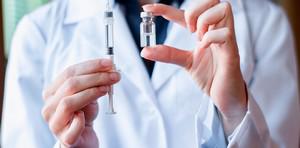EpidemicsImproving speed, effectiveness of clinical trials during an epidemic
Mobilization of a rapid and robust clinical research program that explores whether investigational therapeutics and vaccines are safe and effective to combat the next infectious disease epidemic will depend on strengthening capacity in low-income countries for response and research, engaging people living in affected communities, and conducting safety trials before an epidemic hits, says a new report. Using key lessons learned from the Ebola epidemic in West Africa, the report outlines how to improve the speed and effectiveness of clinical trial research while an epidemic is occurring, especially in settings where there is limited health care and research infrastructure.

Epidemic spread depends on speed of the vaccine trials // Source: theconversation.com
Mobilization of a rapid and robust clinical research program that explores whether investigational therapeutics and vaccines are safe and effective to combat the next infectious disease epidemic will depend on strengthening capacity in low-income countries for response and research, engaging people living in affected communities, and conducting safety trials before an epidemic hits, says a new report from the National Academies of Sciences, Engineering, and Medicine. Using key lessons learned from the Ebola epidemic in West Africa, the report outlines how to improve the speed and effectiveness of clinical trial research while an epidemic is occurring, especially in settings where there is limited health care and research infrastructure.
NAS notes that the research and development of therapeutics and vaccines is a long, complex, and expensive process and cannot be compressed into the course of a rapidly progressing outbreak. The development of a drug “from bench to bedside” is estimated, on average, to take at least 10 years and cost $2.6 billion, with less than 12 percent likelihood of eventual licensing. Therefore, making progress on the research and development of products — such as therapeutics and vaccines — before an epidemic breaks is the only way to ensure that promising candidates are ready for trials once an outbreak occurs, said the committee that carried out the study and wrote the report. In addition, clinical trials could be more rapidly planned, approved, and implemented during an outbreak if promising products are studied through Phase 1 or Phase 2 safety trials in advance of an outbreak and if emergency response planning includes clinical research considerations and clinical researchers in the discussions from the beginning.
The 2014-2015 Ebola epidemic was the longest and most deadly Ebola outbreak since the virus was first discovered in 1976, resulting in 28,616 cases and 11,310 deaths in Guinea, Liberia, and Sierra Leone. In August 2014, the World Health Organization declared the epidemic a public health emergency of international concern. Researchers discussed how to conduct clinical trials on potential Ebola therapeutics and vaccines in West Africa, and ultimately, several teams conducted formal clinical trials in the Ebola-affected countries during the outbreak.
